This website uses cookies so that we can provide you with the best user experience possible. Cookie information is stored in your browser and performs functions such as recognising you when you return to our website and helping our team to understand which sections of the website you find most interesting and useful.
Home Care In Tacoma, WA

They say that your golden years are the best years of your life. For most older Americans, that's how it should be - a time to relax, reflect, and live life in a familiar place. After all, senior citizens in the U.S. have worked tirelessly to build a better economy, serve their communities, and raise families.
However, as seniors grow older, completing daily tasks like showering and enjoying activities such as visiting the historic College Park National Historic District gets harder without someone by their side. Unfortunately, many older Americans aren't able to rely on their adult children for help. The reality in today's world is that family members do not have the skills or time to dedicate to caring for their parents. That's where Always Best Care Senior Services comes in.
Our in-home care services are for people who prefer to stay at home as they grow older but need ongoing care that family or friends cannot provide. More and more older adults prefer to live far away from long-term, institutionalized facilities and closer to the place where they feel most comfortable - their home. Home care in Tacoma, WA is a safe, effective way to give your loved ones the care they need when they need it the most.

 Home Care Services
Home Care Services
- Home Care in Tacoma, WA
- The Always Best Care Difference
- Types of In-home Care in Tacoma, WA
- Benefits of Home Care in Tacoma, WA
- Aging in Place: The Preferred Choice for Most Seniors
- Affordable Care Plans
- Compassionate Care. Trusted Caregivers
- Assisted Living Referral Services
- Taking the First Step with Always Best Care
 Service Areas
Service Areas
The Always Best Care Difference
Since 1996, Always Best Care has provided non-medical in-home care for seniors to help them maintain a healthy lifestyle as they get older. We are proud to have helped more than 25,000 seniors maintain higher levels of dignity and respect. We focus on providing seniors with the highest level of in-home care available so that they may live happily and independently.
Unlike some senior care companies, we genuinely want to be included in our clients' lives. We believe that personalized care is always the better option over a "one size fits all" approach. To make sure our senior clients receive the best care possible, we pair them with compassionate caregivers who understand their unique needs. That way, they may provide care accordingly without compromising their wellbeing.
The Always Best Care difference lies in life's little moments - where compassionate care and trustworthy experience come together to help seniors live a fruitful, healthy life. Whether you are an aging adult that can't quite keep up with life's daily tasks or the child of a senior who needs regular in-home services, Always Best Care is here to help.
“Best dependable care organization”
“My experience with ABC has been very positive... we needed to change hours of coverage”
“This organization is amazing. We needed care for my dad and they provided support during”
“My name is Tracy, and I’ve been a caregiver with this company since 2017. One”
“I have been with Always Best Care for about 8 months. I couldn't be prouder”
“When searching for Elderly Care Service providers I found that Always Best Care has the”
“Loving & caring staff. Honored to know these caregivers and see them in action!”
“Great team, great clientele, available hours”
“The absolute best in home care services! Our family are so grateful for Phil, Deena”
“There is no better agency than Steve and his team. We went through 4 different”
“The greatest in home care ever!! The staff was very knowledgeable and very caring about”
“They were caring, and did a good job when we finally got the right person.”
“I felt confident that my mom was being taken care of and that she seemed”
“It takes some of the burden off of me. When I need schedule changes, such”
“The services are essential because they're always on time. I would recommend Always Best Care”
“The services have helped him the most by having no confusion about taking their pills.”
“They help with things that I can't do anymore. I like that they always have”
“I work for an assisted living community in Tacoma and often come across potential residents”
“They were proactive, nice, pleasant people. One thing I like about them is that they”
“I worked with Phil and Steve to try and find a memory care facility or”
“The agency can make my life easier by communicating more. I like this agency because”
“Best dependable care organization”
“My experience with ABC has been very positive... we needed to change hours of coverage and Eric was incredibly understanding and affected the changes exactly as requested... The care providers I've observed were very attentive to my Dad's needs...”
“This organization is amazing. We needed care for my dad and they provided support during an incredibly difficult time for our family. Silvia, Lucy and Michael were so kind and compassionate. We were able to adjust the care hours required very efficiently and had lots of support navigating these unfamiliar circumstances.”
“My name is Tracy, and I’ve been a caregiver with this company since 2017. One of the biggest reasons I’m still with this company is because the owners are very supportive and respectful to their employees. The management works well with employees schedules. The management is very dedicated to make sure all clients receive the very best care possible. I cannot recommend this company enough to work for!!”
“I have been with Always Best Care for about 8 months. I couldn't be prouder to represent this company . It's so great to work in an environment where the members of the team have a strong sense of camaraderie and a great work ethic. It's important to me to be able to trust my team members to always do their best because I do.”
“When searching for Elderly Care Service providers I found that Always Best Care has the passion to support the growing community of elders.”
“Loving & caring staff. Honored to know these caregivers and see them in action!”
“Great team, great clientele, available hours”
“The absolute best in home care services! Our family are so grateful for Phil, Deena and their entire home care team! We could not have cared for our mother at home without them!”
“There is no better agency than Steve and his team. We went through 4 different agencies until we found them and have thanked our lucky stars. Reliable, educated and experienced. They have our family’s best interest and heart in mind.”
“The greatest in home care ever!! The staff was very knowledgeable and very caring about our needs.”
“They were caring, and did a good job when we finally got the right person. They were caring, efficient and they did a good job.”
“I felt confident that my mom was being taken care of and that she seemed happy with the caregivers. As far as her life she was well fed, her physical hygiene was taken care of, and she had company. I'd recommend them because the caregivers were well trained and they showed a lot of care for my mother and they also kept the family informed.”
“It takes some of the burden off of me. When I need schedule changes, such as today with an early morning doctor's appointment, they easily change the schedule when we need. I already have. I like that they come and check and find out what our goals are, as well as working with the provider that comes to our home. They are well coordinated.”
“The services are essential because they're always on time. I would recommend Always Best Care because I like the people who they send. They're just outstanding.”
“The services have helped him the most by having no confusion about taking their pills. I want them to follow-up more often.”
“They help with things that I can't do anymore. I like that they always have someone for you.”
“I work for an assisted living community in Tacoma and often come across potential residents and their family members who use Always Best Care for in-home caregiving, as well as senior advising to find long term care placement. Phil and Steve are fantastic care partners, and great advocates for seniors in our area!”
“They were proactive, nice, pleasant people. One thing I like about them is that they are very nice and professional, easy to work with.”
“I worked with Phil and Steve to try and find a memory care facility or possibly an adult family home for my mom who was in late stage Altzheimers disease. They were both so caring, empathetic, understanding and patient with us during the most difficult time for our family. Ultimately we were unable to move mom, but I never felt any frustration or impatience from them, only the utmost care and concern. I would recommend this place to anyone trying to find a care facility or home for a loved one.”
“The agency can make my life easier by communicating more. I like this agency because they are prompt.”
What is Non-Medical Senior Care in Tacoma, WA?

Home is where the heart is. While that saying can sound a tad cliche, it is especially true for many seniors living in America. When given a choice, older adults most often prefer to grow older at home. An AARP study found that three out of four adults over the age of 50 want to stay in their homes and communities as they age.

When you begin to think about why, it makes sense. Home offers a sense of security, comfort, and familiarity.

The truth is, as we age, we begin to rely on others for help. When a family is too busy or lives too far away to fulfill this role, in-home senior care is often the best solution. Home care services allow seniors to enjoy personal independence while also receiving trustworthy assistance from a trained caregiver.

At Always Best Care, we offer a comprehensive range of home care services to help seniors stay healthy while they get the help they need to remain independent. As your senior loved one gets older, giving them the gift of senior care is one of the best ways to show your love, even if you live far away.
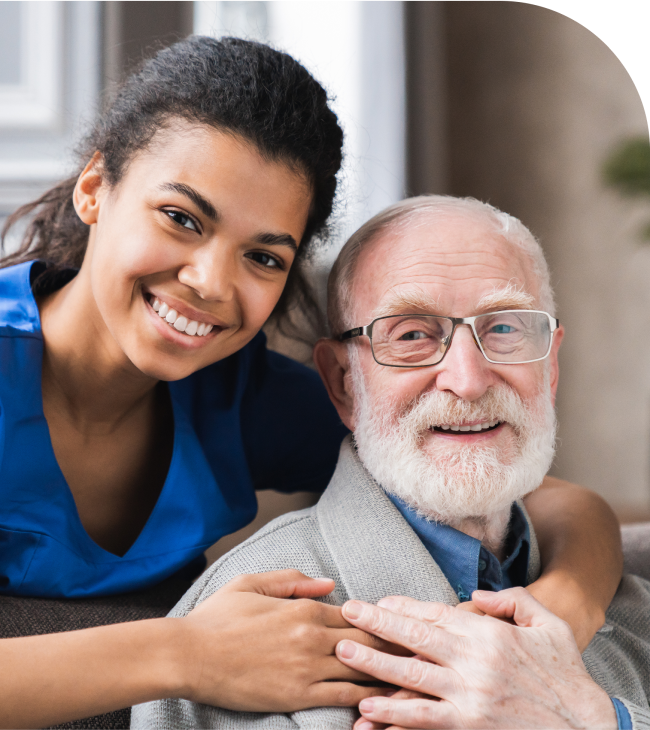
Types of Elderly Care in Tacoma, WA
To give our senior clients the best care possible, we offer a full spectrum of in-home care services:

Personal Care Services
If your senior loved one has specific care needs, our personal care services are a great choice to consider. Personal care includes the standard caregiving duties associated with companion care and includes help with tasks such as dressing and grooming. Personal care can also help individuals with chronic conditions like diabetes.
Common personal care services include assistance with:
- Eating
- Mobility Issues
- Incontinence
- Bathing
- Dressing
- Grooming
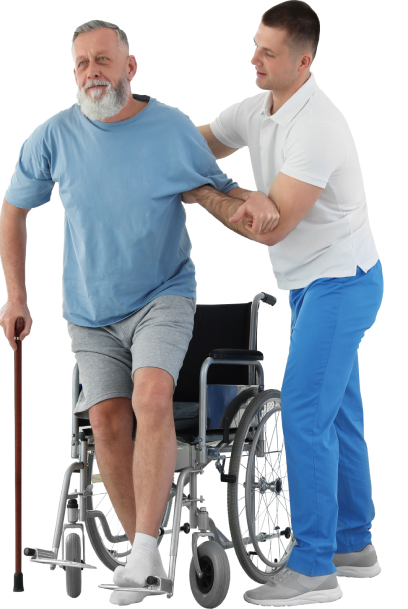

Home Helper Services
Sometimes, seniors need helpful reminders to maintain a high quality of life at home. If you or your senior has trouble with everyday tasks like cooking, our home helper services will be very beneficial.
Common home helper care services include assistance with:
- Medication Reminders
- Meal Preparation
- Pet Care
- Prescription Refills
- Morning Wake-Up
- Walking
- Reading
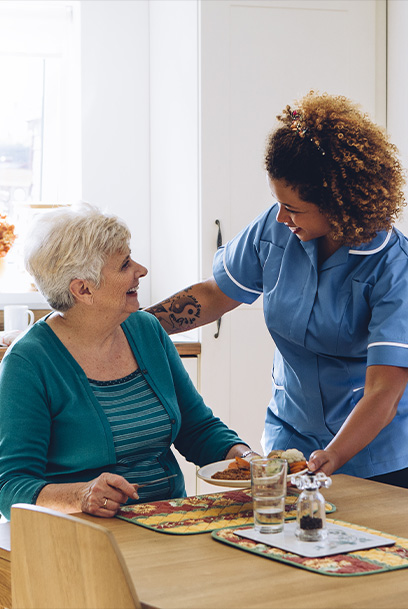

Companionship Services
Using this kind of care is a fantastic way to make life easier for you or your senior loved one. At Always Best Care, our talented caregivers often fill the role of a companion for seniors. That way, older adults can enjoy their favorite local activities, such as visiting Titlow Park with friends while also receiving the care they need daily or weekly.
Common companionship services include:
- Grocery Shopping
- Transportation to Appointments
- Nutritional Assistance
- Conversation
- Planning Outings
- Completing Errands
- Transportation to Community
- Events and Social Outings


Respite Care Services
According to AARP, more than 53 million adults living in the U.S. provide care to someone over 50 years old. Unfortunately, these caregivers experience stress, exhaustion, and even depression. Our respite care services help family caregivers address urgent obligations, spend time with their children, and enjoy nearby activities. Perhaps more importantly, respite care gives family members time to recharge and regroup. Taking personal time to de-stress reduces the risk of caregiver burnout. So, if you've always wanted to eat at the local The Melting Pot - Tacoma or visit Port of Tacoma Observation Tower, don't feel bad. Doing so is great for both you and your loved one.
At the end of the day, our goal is to become a valuable part of your senior's daily routine. That way, we may help give them the highest quality of life possible. We know that staying at home is important for your loved one, and we are here to help make sure that is possible.
If you have been on the fence about non-medical home care, there has never been a better time than now to give your senior the care, assistance, and companionship they deserve.
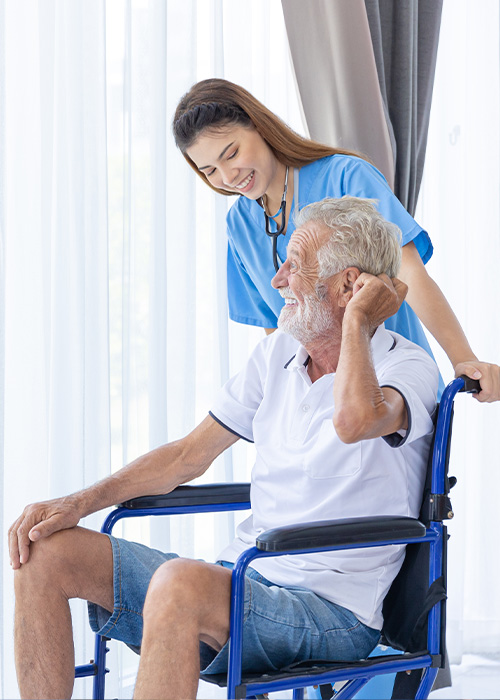
Benefits of Home Care in Tacoma, WA
Always Best Care in-home services are for older adults who prefer to stay at home but need ongoing care that friends and family cannot provide. In-home care is a safe, effective way for seniors to age gracefully in a familiar place and live independent, non-institutionalized lives. The benefits of non-medical home care are numerous. Here are just a few reasons to consider senior care services from Always Best Care:
Always Best Care offers a full array of care options for patients at all levels of health. With our trusted elderly care services, your loved one will receive the level of care necessary for them to enjoy the highest possible quality of life.
Request More Information
Aging in Place: The Preferred Choice for Most Seniors
While it's true that some seniors have complicated medical needs that prevent them from staying at home, aging in place is often the best arrangement for seniors and their families. With a trusted caregiver, seniors have the opportunity to live with a sense of dignity and do so as they see fit - something that is unavailable to many older people today.
In-home care makes it possible for millions of seniors to age in place every year. Rather than moving to a strange nursing home, seniors have the chance to stay at home where they feel the happiest and most comfortable.
Here are just a few of the reasons why older men and women prefer to age at home:
How much does a senior's home truly mean to them?
A study published by the American Society on Aging found that more than half of seniors say their home's emotional value means more than how much their home is worth in monetary value. It stands to reason, then, that a senior's home is where they want to grow old.
With the help of elderly care in Tacoma, WA, seniors don't have to age in a sterilized care facility. Instead, they can age gracefully in the place they want to be most: their home. In contrast, seniors who move to a long-term care facility must adapt to new environments, new people, and new systems that the facility implements. At this stage in life, this kind of drastic change can be more harmful than helpful.
Institutional care facilities like nursing homes often put large groups of people together to live in one location. On any given day, dozens of staff members and caregivers run in and out of these facilities. Being around so many new people in a relatively small living environment can be dangerous for a seniors' health and wellbeing. When you consider that thousands of seniors passed away in nursing homes during the COVID-19 pandemic, opting for in-home care is often a safer, healthier choice for seniors.
Aging in place has been shown to improve seniors' quality of life, which helps boost physical health and also helps insulate them from viral and bacterial risks found in elderly living facilities.
For many seniors, the ability to live independently with assistance from a caregiver is a priceless option. With in-home care, seniors experience a higher level of independence and freedom - much more so than in other settings like a nursing home. When a senior has the chance to age in place, they get to live life on their own terms, inside the house that they helped make into a home. More independence means more control over their personal lives, too, which leads to increased levels of fulfillment, happiness, and personal gratification. Over time, these positive feelings can manifest into a healthier, longer life.
More independence, a healthier life, and increased comfort are only a few benefits of aging in place. You have to take into consideration the role of cost and convenience. Simply put, it's usually easier and more affordable to help seniors age in place than it is to move them into an institutional care facility. According to the US Department of Housing and Urban Development, seniors who age in the comfort of their homes can save thousands of dollars per month.
In-home care services from Always Best Care, for instance, are often less expensive than long-term solutions, which can cost upwards of six figures per year. To make matters worse, many residential care facilities are reluctant to accept long-term care insurance and other types of payment assistance.
With Always Best Care's home care services, seniors and their families have a greater level of control over their care plans. In-home care gives seniors the chance to form a bond with a trusted caregiver and also receive unmatched care that is catered to their needs. In long-term care facilities, seniors and their loved ones have much less control over their care plan and have less of a say in who provides their care.
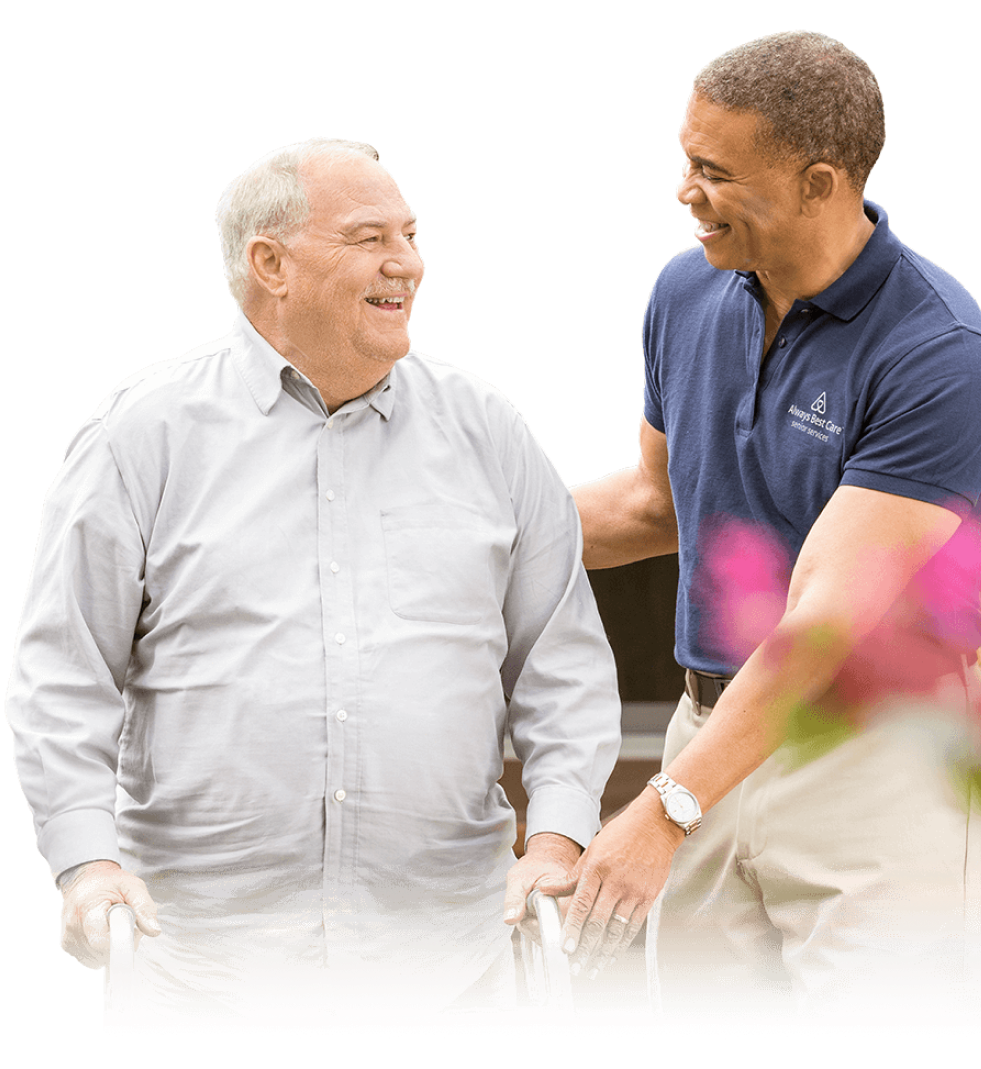
Affordable Care
In-home care is a valuable resource that empowers seniors to age in place on their own terms. However, a big concern for many families and their loved ones is how much in-home care costs. If you're worried that in-home care is too expensive, you may be pleasantly surprised to learn that it is one of the most affordable senior care arrangements available.
Typically, hiring an Always Best Care in-home caregiver for a few hours a week is more affordable than sending your loved one to a long-term care facility. This is true even for seniors with more complex care needs.
At Always Best Care, we will work closely with you and your family to develop a Care Plan that not only meets your care needs, but your budget requirements, too. Once we discover the level of care that you or your senior need, we develop an in-home care plan that you can afford.
In addition to our flexible care options, families should also consider the following resources to help offset potential home care costs:

Compassionate Care. Trusted Caregivers.
When you or your senior loved one needs assistance managing daily tasks at home, finding a qualified caregiver can be challenging. It takes a special kind of person to provide reliable care for your senior loved one. However, a caregiver's role involves more than meal preparation and medication reminders. Many seniors rely on their caregivers for companionship, too.
Our companion care services give seniors the chance to socialize in a safe environment and engage in activities at home. These important efforts boost morale and provide much-needed relief from repetitive daily routines. A one-on-one, engaging conversation can sharpen seniors' minds and give them something in which to be excited.
At Always Best Care, we only hire care providers that we would trust to care for our own loved ones. Our senior caregivers in Tacoma, WA understand how important it is to listen and communicate with their seniors. A seemingly small interaction, like a short hug goodbye, can make a major difference in a senior's day. Instead of battling against feelings of isolation, seniors begin to look forward to seeing their caregiver each week.
Understanding the nuances of senior care is just one of the reasons why our care providers are so great at their job.
Unlike some senior care companies, our caregivers must undergo extensive training before they work for Always Best Care. In addition, our caregivers receive ongoing training throughout the year. This training ensures that their standard of care matches up to the high standards we've come to expect. During this training, they will brush up on their communication skills, safety awareness, and symptom spotting. That way, your loved one receives the highest level of non-medical home care from day one.
Assisted Living Referral Services
While it's true that many seniors prefer to age at home, sometimes in-home care isn't the best fit. For those seniors and their families, choosing an assisted living facility makes more sense. Unfortunately, finding the optimal care facility is easier said than done in today's day and age. That's when Always Best Care's assisted living referral services begin to make a lot of sense.
Assisted living is a form of housing intended for seniors who require varying degrees of medical and personal attention. Accommodations may include single rooms, apartments, or shared living arrangements. Assisted living communities are typically designed to resemble a home-like environment and are physically constructed to encourage the independence of residents.
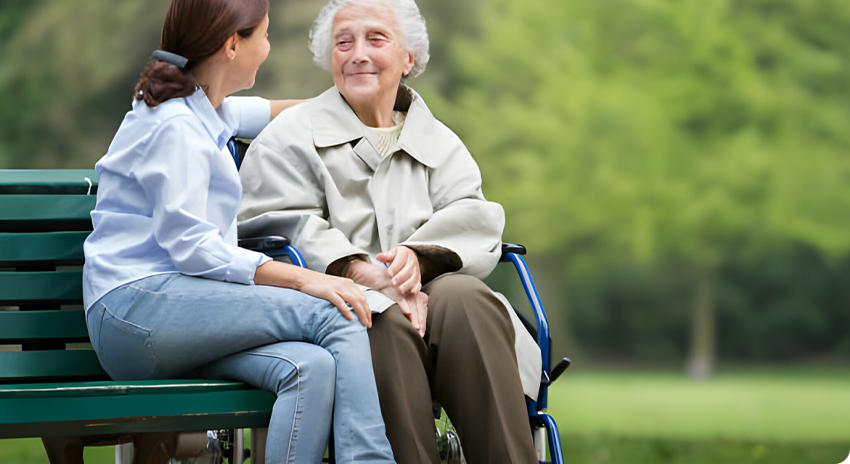
At assisted living communities, seniors receive help with daily activities such as bathing, dressing, and eating. They may also benefit from coordination of services with outside healthcare providers, and monitoring of resident activities to ensure their health, safety, and well-being. Caregivers who work at assisted living communities can also provide medication administration and personal care services for older adults.
Other services offered within assisted living communities can include some or all of the following:
- Housekeeping
- Laundry
- Recreational Activities
- Social Outings
- Emergency Medical Response
- Medication Monitoring
- Family Visitation
- Personal Care
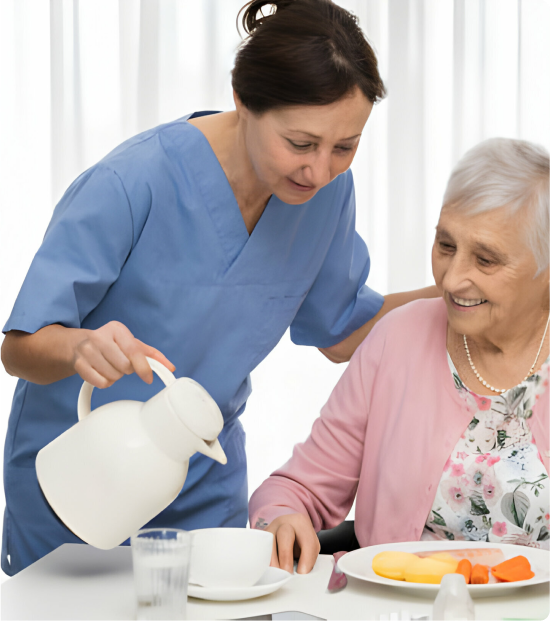
At Always Best Care, our representatives can match your senior's emotional, physical, and financial needs with viable assisted living communities nearby. Results are based on comparative data, so you can select the best choice for you or your loved one.
Always Best Care works closely with local senior living communities to gain valuable knowledge that we then use to help seniors and their loved ones make informed decisions. This information can include basic care and rent, resident availability, and services provided. Because Always Best Care is compensated by these communities, we provide senior living referral services at no extra cost to you.
Some of the most popular assisted living communities to consider in our area include the following:
- Cascade Park Vista
- Weatherly Inn Tacoma
- Peoples Senior Living
- GenCare Lifestyle Tacoma at Point Ruston
- Brookdale Allenmore
- Merrill Gardens at Wright Park
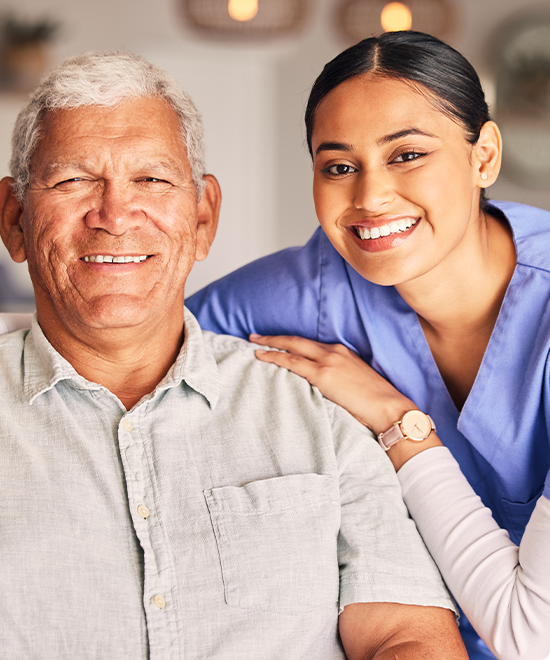
For many seniors, moving into a senior living community revolves around how and when they want to make a transition to more involved care. Some seniors are more proactive about transitioning to independent living. Others choose to remain home until their care needs or other requirements are satisfied. Remember - our staff is here to help. Contact our office today to learn more about assisted living communities and how we can find a facility that exceeds your expectations.
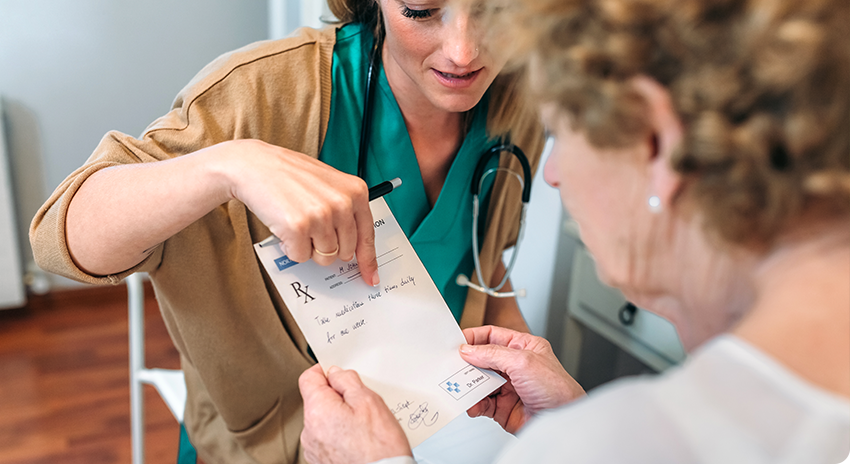
Taking the First Step with Always Best Care
The first step in getting quality in-home care starts with a personal consultation with an experienced Always Best Care Care Coordinator. This initial consultation is crucial for our team to learn more about you or your elderly loved one to discover the level of care required. Topics of this consultation typically include:
A discussion of your needs and how our trained caregivers can offer assistance in the most effective way

A draft of your care plan, which includes highly detailed notes and a framework for the care that you or your senior will receive

Discuss payment options and help coordinate billing with your insurance provider

Our caregivers are trained to spot changes that clients exhibit, like mental and physical decline. As your trusted senior care company, we will constantly assess and update your Care Plan to meet any new emotional, intellectual, physical, and emotional needs.
If you have never considered in-home care before, we understand that you and your family may have concerns about your Care Plan and its Care Coordinator. To help give you peace of mind, know that every team member and caregiver must undergo comprehensive training before being assigned to a Care Plan.
At the end of the day, we only hire the best of the best at Always Best Care. Whether you need home care in Tacoma, WA 24-hours a day or only need a respite for a couple of hours, we are here to serve you.
When you're ready, we encourage you to contact your local Always Best Care representative to set up a Care Consultation. Our Care Coordinators would be happy to meet with you in person to get to know you better, discuss your needs, and help put together a personalized Care Plan specific to your needs.
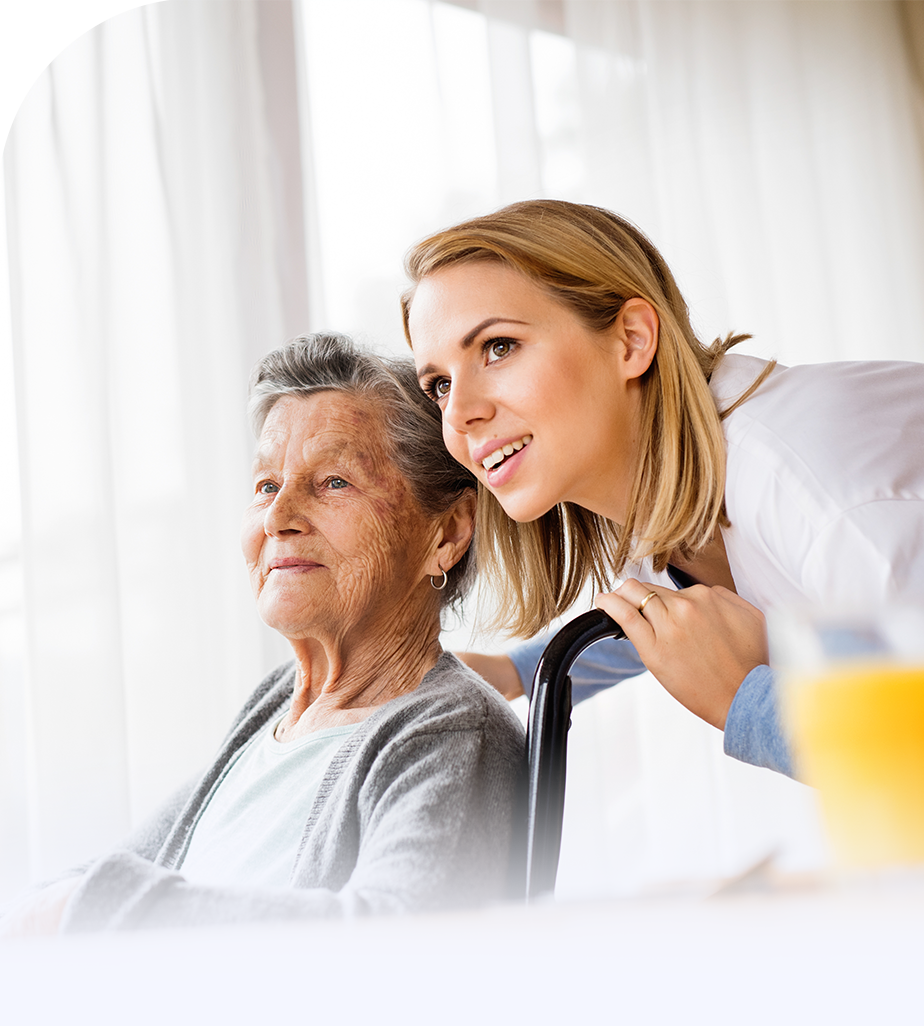
Latest News in Tacoma, WA
Two Kroger-owned grocery stores in western Washington set to close
Alex Didionhttps://www.king5.com/article/life/food/fred-meyer-tacoma-closed/281-af84c84d-f54a-473d-85fd-e45d4b9c1dcd
Another Kroger-owned grocery store also announced an impending closure in Mill Creek.TACOMA, Wash. — Another grocery store is set to close in western Washington.Kroger, which owns Fred Meyer and QFC, told KING 5 Wednesday that the Fred Meyer location on Pacific Avenue in Tacoma is closing. It will remain open until late September, a spokesperson confirmed.“Unfortunately, we have made the difficult decision to close the Tacoma Pacific Fred Meyer store. While we are leaving this location, we will offer each imp...
Another Kroger-owned grocery store also announced an impending closure in Mill Creek.
TACOMA, Wash. — Another grocery store is set to close in western Washington.
Kroger, which owns Fred Meyer and QFC, told KING 5 Wednesday that the Fred Meyer location on Pacific Avenue in Tacoma is closing. It will remain open until late September, a spokesperson confirmed.
“Unfortunately, we have made the difficult decision to close the Tacoma Pacific Fred Meyer store. While we are leaving this location, we will offer each impacted associate the opportunity to transfer to a new location. This closure is part of a larger company-wide decision to run more efficiently and ensure the long-term health of our business,” a Kroger spokesperson said.
Tacoma City Councilmember Joe Bushnell said the loss of the store was not just a setback but an opportunity. Bushnell said the city's Community & Economic Development Department is engaging property owners to talk about the future of the space.
"This is a prime commercial space in a thriving area of our city, and its vacancy opens a new chapter," Bushnell said in a statement.
The news comes in the same week that Kroger filed a Worker Adjustment and Retraining Notification (WARN) notice with the state about an upcoming closure of a QFC in Mill Creek. The closure will impact 76 workers and the closing date appears to be Sept. 3.
Kroger recently announced plans to close 60 stores across the country in June, but did not specify whether Seattle stores would be impacted. Seattle city council members have expressed concern of late over the potential for more grocery closures in the city and beyond.
"I continue to be concerned about the two QFCs on Broadway," said Seattle City Councilmember Joy Hollingsworth.
She says loitering and shoplifting are putting those stores at risk of closing. The neighborhood already lost a Whole Foods just last month — and another grocery store before that.
"During my tenure we've lost two grocery stores in my district. I don't want to lose another one," Hollingsworth said.
Tacoma still has two other Fred Meyer locations and two QFC stores open in the city.
Lawsuit filed to put Tacoma, WA Workers Bill of Rights on November ballot
Jennifer Dowlinghttps://www.fox13seattle.com/news/lawsuit-filed-put-tacoma-workers-bill-rights-ballot
TACOMA, Wash. - Tacoma and Pierce County officials are now facing a lawsuit after being accused by labor rights organizations of illegally keeping a worker's bill of rights off the November ballot.The lawsuit was filed by local union UFCW 367, Tacoma for All and the Democratic Socialists of America on Tuesday.Organizers say they are asking the courts to put the initiative on the ballot in November.What they're saying:They accuse city and county leaders of using a loophole and dragging their feet t...
TACOMA, Wash. - Tacoma and Pierce County officials are now facing a lawsuit after being accused by labor rights organizations of illegally keeping a worker's bill of rights off the November ballot.
The lawsuit was filed by local union UFCW 367, Tacoma for All and the Democratic Socialists of America on Tuesday.
Organizers say they are asking the courts to put the initiative on the ballot in November.
What they're saying:
They accuse city and county leaders of using a loophole and dragging their feet to prevent it from going before the voters in November.
Tacoma and Pierce County officials are now facing a lawsuit after being accused by labor rights organizations of keeping a worker's bill of rights off the November ballot. #fox13 #fox13seattle #seattle #tacoma #piercecounty #washington @fox13seattle.bsky.social
— (@jenniferdowling.bsky.social) 2025-08-13T04:55:44.031Z
"I have a 29-year-old daughter, and she can’t move away from home because she can’t make enough money," said Aria Joslyn, member of UFCW 367 and a long-time Tacoma resident.
Joslyn works as a cashier and was one of the workers rallying at Tacoma City Hall on Tuesday in support of a worker's bill of rights that was supposed to be on the ballot in November.
"It holds the employers accountable for making sure that hours stay stable," said Joslyn.
Supporters say Initiative 2 would have raised the minimum wage to $20 an hour, and required employers to give around two weeks notice prior to scheduling changes.
They now accuse city and county officials of dragging their feet for so long, it won't make it on the ballot.
"Essentially, the city council ran out the clock using an obscure legal loophole, and this is not in keeping with the spirit of democracy," said Ann Dorn, Chair of Tacoma for All.
Timeline:
The group says in the lawsuit that they filed the signatures on June 24.
But, they allege the county auditor didn't begin validating them until around two weeks later, July 7.
After that, they say the Tacoma City Clerk took another day to validate it and send it to the city council.
From there, organizers say the city council didn't take action until August 8, and according to the county auditor, that was three days too late.
"They ran out the clock and kicked it down the road to February if we are lucky," said Michael Hines, President of UFCW Local 367.
This is an excerpt from the complaint that was filed with the courts:
"The County Auditor rejected Resolution 41733 for being three days too late to send a measure to the 2025 ballot, pursuant to RCW 29A.04.330(3). See Exhibit B (Resolution 41733, with rejection stamp). However, this timing was the direct result of Pierce County’s failure to promptly validate the petition.
"It is uncontested that Plaintiffs submitted sufficient signatures on June 24th, but the County Auditor did not begin the validation process until July 7th. It completed that process in two days, and then there were further delays at the City Level. It is fundamentally unfair, and contrary to statutory requirements, for local government to delay the processing of an initiative and to use that delay to deny ballot access."
The mayor has expressed concern about the initiative at city council meetings, including the impact on non-profits, saying this during a special meeting on August 8th.
"While we have the obligation to forward to the auditors’ office, I still have deep concern about its passing and its unanticipated effects on all of those who live in the community," said Tacoma Mayor Victoria Woodards.
The council did adopt a resolution Tuesday to appoint a 15-member task force to look at Tacoma's labor standards. It's something the mayor supports. It's also something that concerns Hines.
"I think it’s a ruse to put something competing on the ballot," said Hines.
The Pierce County Auditor sent FOX 13 the following statement regarding the lawsuit:
"I am unable to comment on pending litigation. Thank you."
The Source: Information in this story came from the City of Tacoma, UFCW 367, Tacoma for All and original FOX 13 Seattle reporting.
MORE NEWS FROM FOX 13 SEATTLE
3 Seattle-area sandwich shops make Yelp's Top 100 list
To get the best local news, weather and sports in Seattle for free, sign up for the daily .
Download the free FOX LOCAL app for mobile in the or for live Seattle news, top stories, weather updates and more local and national news.
We are investigating possible locally acquired case of malaria
Tacoma-Pierce County Health Departmenthttps://tpchd.org/news/we-are-investigating-possible-locally-acquired-case-of-malaria/
The risk to the public is very low.An East Pierce County woman who has not traveled recently was diagnosed Aug. 2 with malaria. She is receiving treatment and we continue to monitor her status.We are working with Washington State Department of Health (DOH) and Centers for Disease Control and Prevention (CDC) to investigate potential sources of infection. It’s possible she was recently infected with malaria in Washington. If confirmed, this would be the first known locally acquired case of malaria in Was...
The risk to the public is very low.
An East Pierce County woman who has not traveled recently was diagnosed Aug. 2 with malaria. She is receiving treatment and we continue to monitor her status.
We are working with Washington State Department of Health (DOH) and Centers for Disease Control and Prevention (CDC) to investigate potential sources of infection. It’s possible she was recently infected with malaria in Washington. If confirmed, this would be the first known locally acquired case of malaria in Washington.
The most likely cause of a locally acquired case is a mosquito biting someone infected with a travel-associated case of malaria, then passing the infection on to this patient.
“The risk of getting infected with malaria in Pierce County remains very low,” said Dr. James Miller, Tacoma-Pierce County Health Officer. “Malaria is a rare disease overall in the United States—and the vast majority of cases in the United States occur following exposures in countries with ongoing transmission.”
Malaria is a mosquito-borne disease caused by a parasite. It typically causes fever, chills, body aches, headaches, and fatigue. It can also cause nausea, vomiting, and diarrhea. In most cases, the incubation period—the time between infection and start of symptoms—is 7-30 days. Malaria does not spread directly from one person to another.
Malaria can be cured with prescription antimalarial drugs. It can be life-threatening if is not diagnosed and treated quickly.
The U.S. sees about 2,000–2,500 and Washington sees about 20-70 reports of malaria cases each year linked to travel. In 2023, the United States experienced its first locally acquired mosquito-transmitted malaria case in 20 years. Between May 2023–October 2023, 10 cases were reported across four states.
The Anopheles mosquitoes that transmit malaria live across the U.S. If they bite someone infected with malaria, they may become infectious and could transmit the parasite to people in the area.
As part of the investigation, we are working with DOH to implement mosquito trapping and testing. Fortunately, at this time of year mosquito populations in Pierce County are decreasing.
The best way to prevent malaria is to prevent mosquito bites and ensure early diagnosis and treatment of cases in returning travelers. Use an EPA-registered insect repellent and wear long sleeved clothing when spending time in areas with mosquitoes and use screens on windows and doors. Remove and reduce places where mosquitoes can breed by removing or covering sources of standing water like birdbaths, animal troughs, pools, tires, or other places where water may collect.
Travelers to countries where malaria is more common should take steps to prevent acquiring malaria. That sometimes includes taking medications to prevent malaria. Contact a healthcare provider before traveling to see if you need to take medications to prevent malaria. If you develop symptoms of malaria, contact a healthcare provider right away.
This situation also highlights the importance of a prepared and coordinated public health system that is ready to respond to urgent communicable disease investigations. We are grateful to our partners at DOH and CDC for their assistance with various aspects of this investigation. We also rely on healthcare workers to recognize and report rare diseases to public health and thank the astute clinicians who diagnosed this person.
About Tacoma-Pierce County Health Department: Tacoma-Pierce County Health Department’s mission is to protect and improve the health of all people and places in Pierce County. As part of our mission, the Health Department tackles known and emerging health risks through policy, programs, and treatment to protect public health. Learn more at .
Bridge Point Development: Construction stormwater permit and settlement
wa.govhttps://ecology.wa.gov/ecologys-work-near-you/regional-work/southwest-region/bridge-point-development-tacoma-settlement
We reached an initial settlement agreement with Bridge Point Tacoma for $8.95 million that will help reduce air quality impacts to communities near the company’s proposed warehouse development project (often called Bridge Industrial).I want to...Bridge Point Tacoma, is developing a 2.5 million square foot warehouse facility in South Tacoma. This project is located on a historically contaminated site (Commencemen...
We reached an initial settlement agreement with Bridge Point Tacoma for $8.95 million that will help reduce air quality impacts to communities near the company’s proposed warehouse development project (often called Bridge Industrial).
I want to...
Bridge Point Tacoma, is developing a 2.5 million square foot warehouse facility in South Tacoma. This project is located on a historically contaminated site (Commencement Bay, South Tacoma Channel Superfund Site).
What is Ecology’s role in the history of the project?
In December 2023, we issued the project coverage under the Construction Stormwater General Permit (CSGP). We included an administrative order with the project’s permit coverage. This order had conditions Bridge Point Tacoma had to follow to protect water quality when working on a contaminated site, as well as conditions to mitigate air quality and traffic impacts from diesel trucks. Bridge Point Tacoma appealed its permit coverage and the traffic and air-quality related conditions in the administrative order, although both the order and permit coverage remained in effect during the appeal process.
As part of a settlement agreement, Bridge Point Tacoma has agreed to withdraw its appeal and pay Ecology $8.95 million to address traffic and air pollution in South Tacoma.
What happens next?
Ecology will use these funds to implement protective measures and add local-scale air monitoring in the South Tacoma neighborhoods impacted by diesel truck traffic. As part of Ecology’s Climate Commitment Act, we have identified these neighborhoods as overburdened and highly impacted by air pollution.
In the coming months, we will start gathering community input about how the settlement funds should be used to best address air quality and traffic impacts from diesel trucks in South Tacoma. We will also reissue the administrative order that accompanied the project’s construction stormwater permit coverage. That reissued order will include the same water quality conditions as the original order.
Disclaimer:


 253-534-9596
253-534-9596





